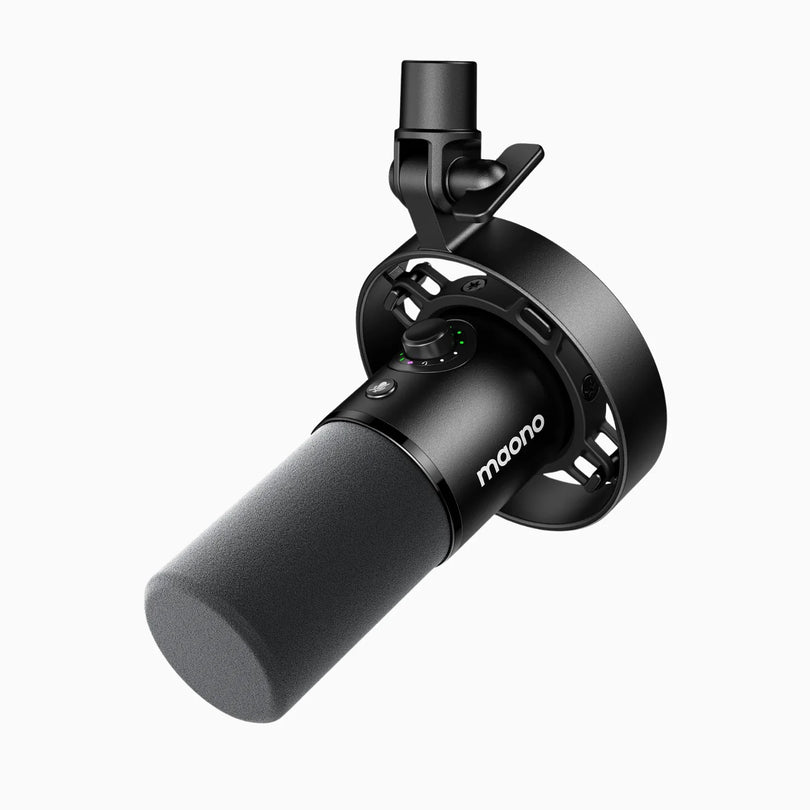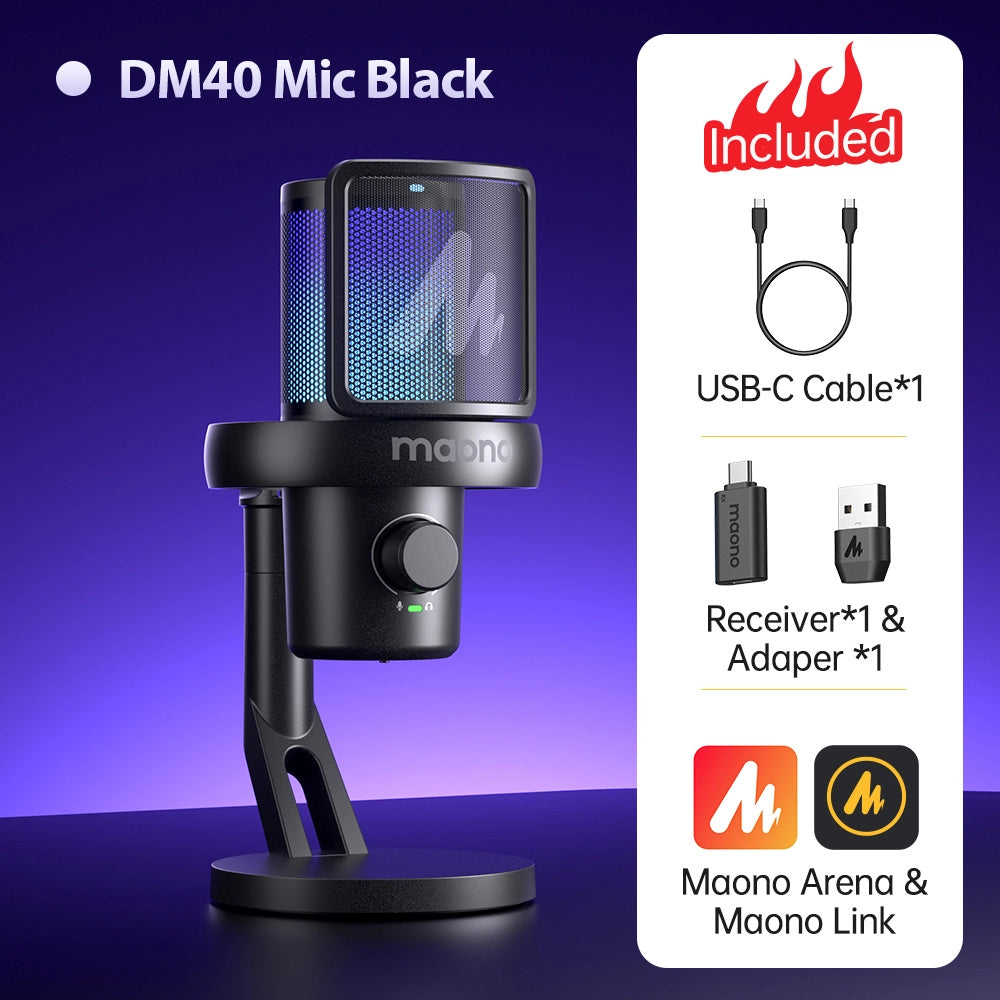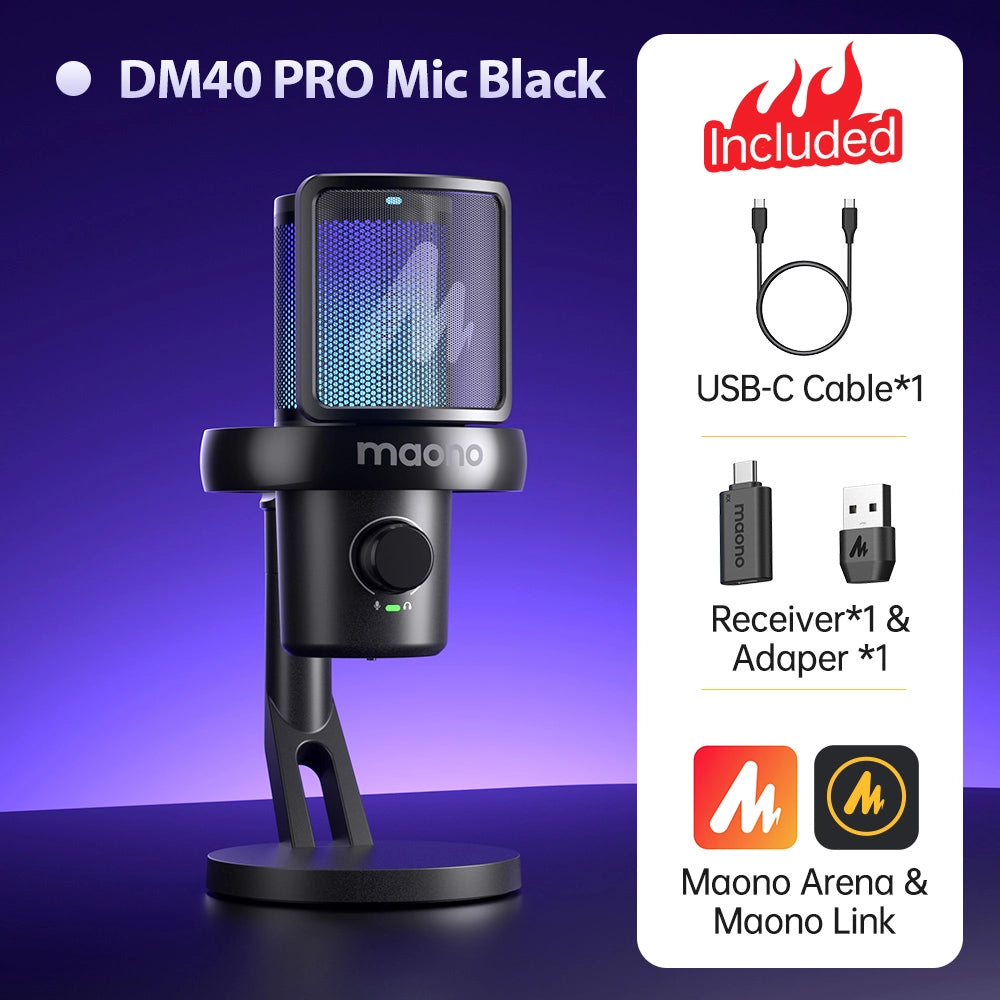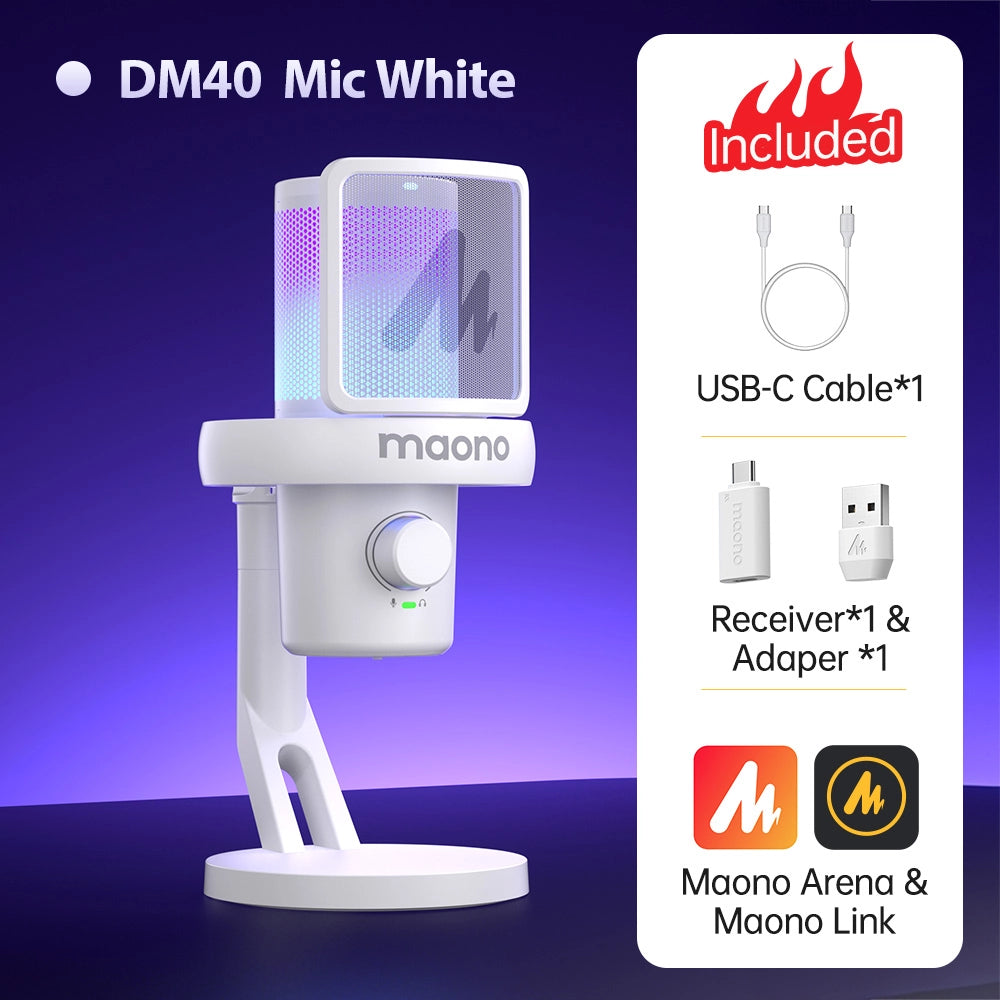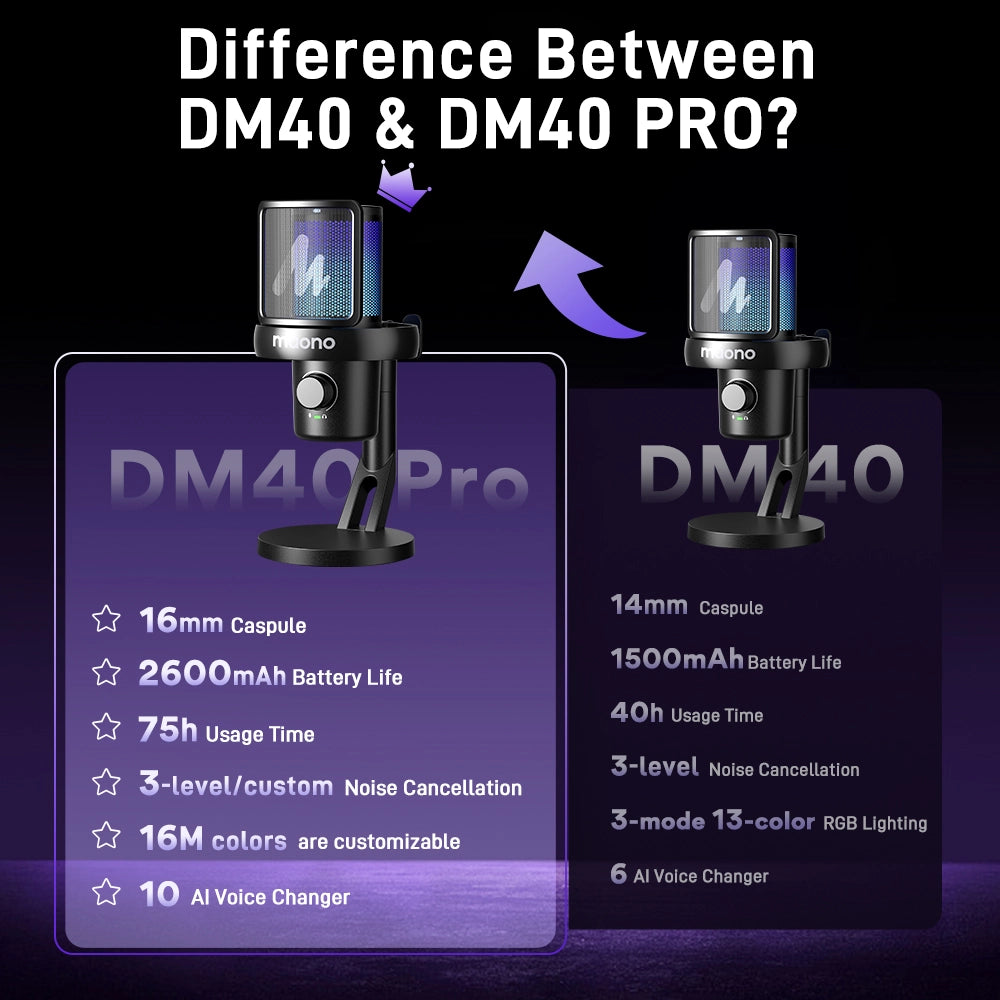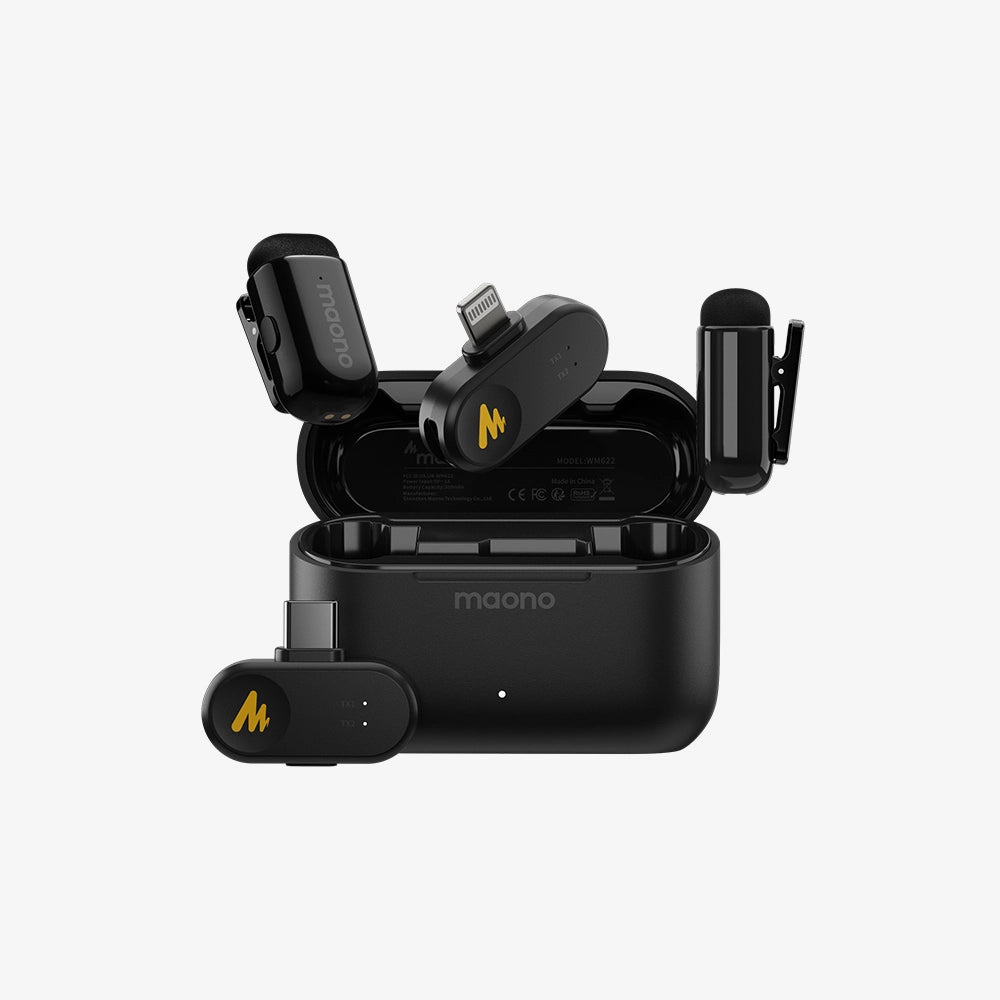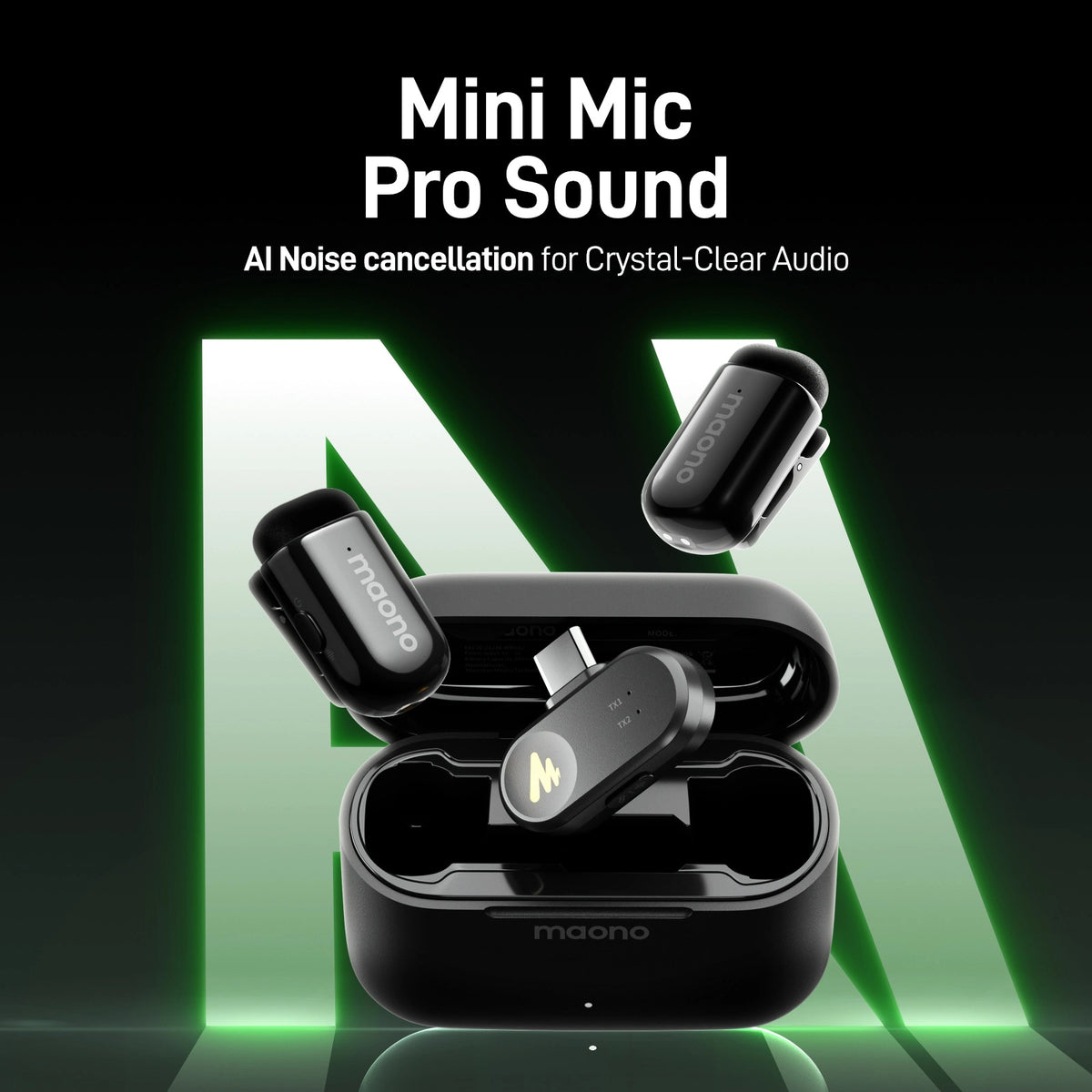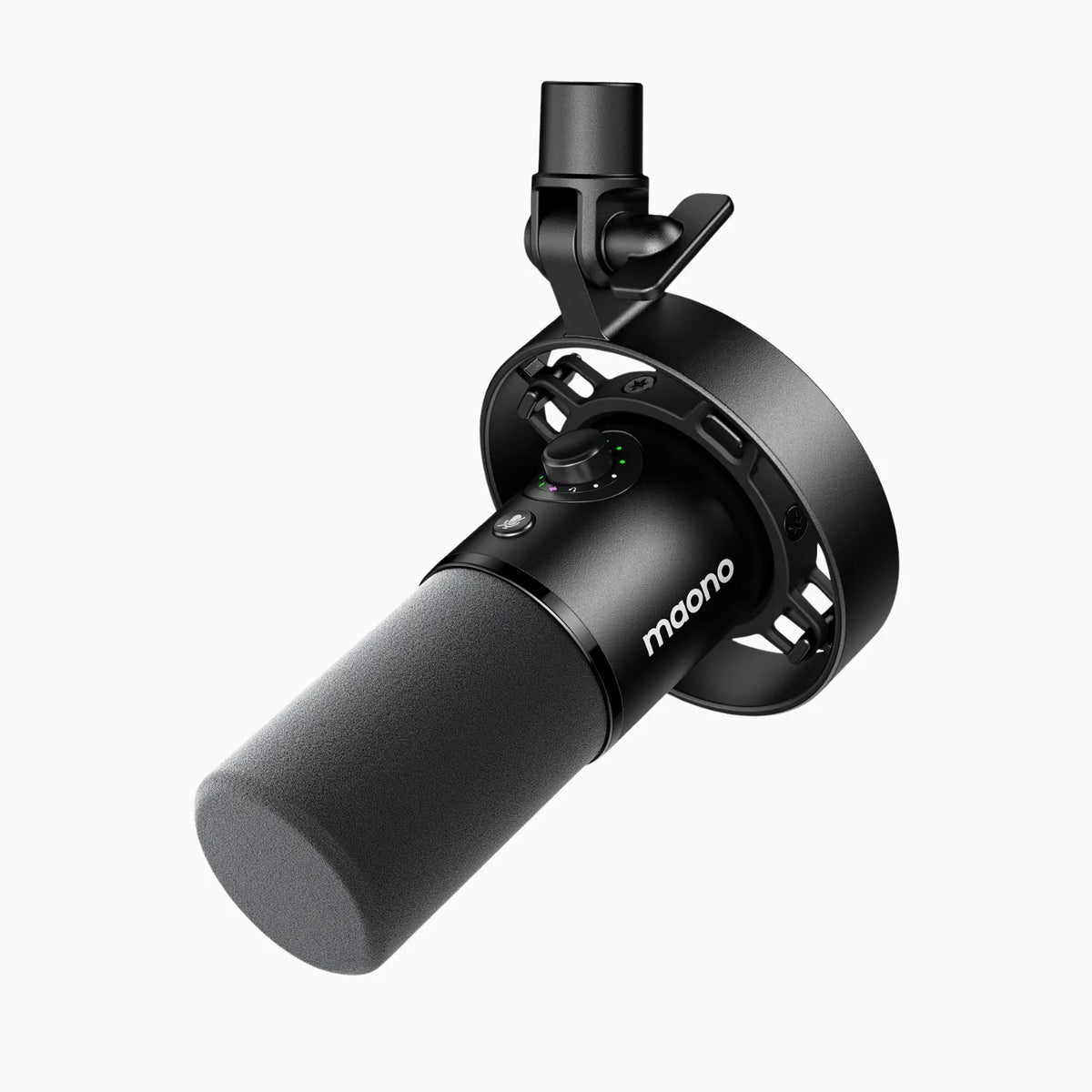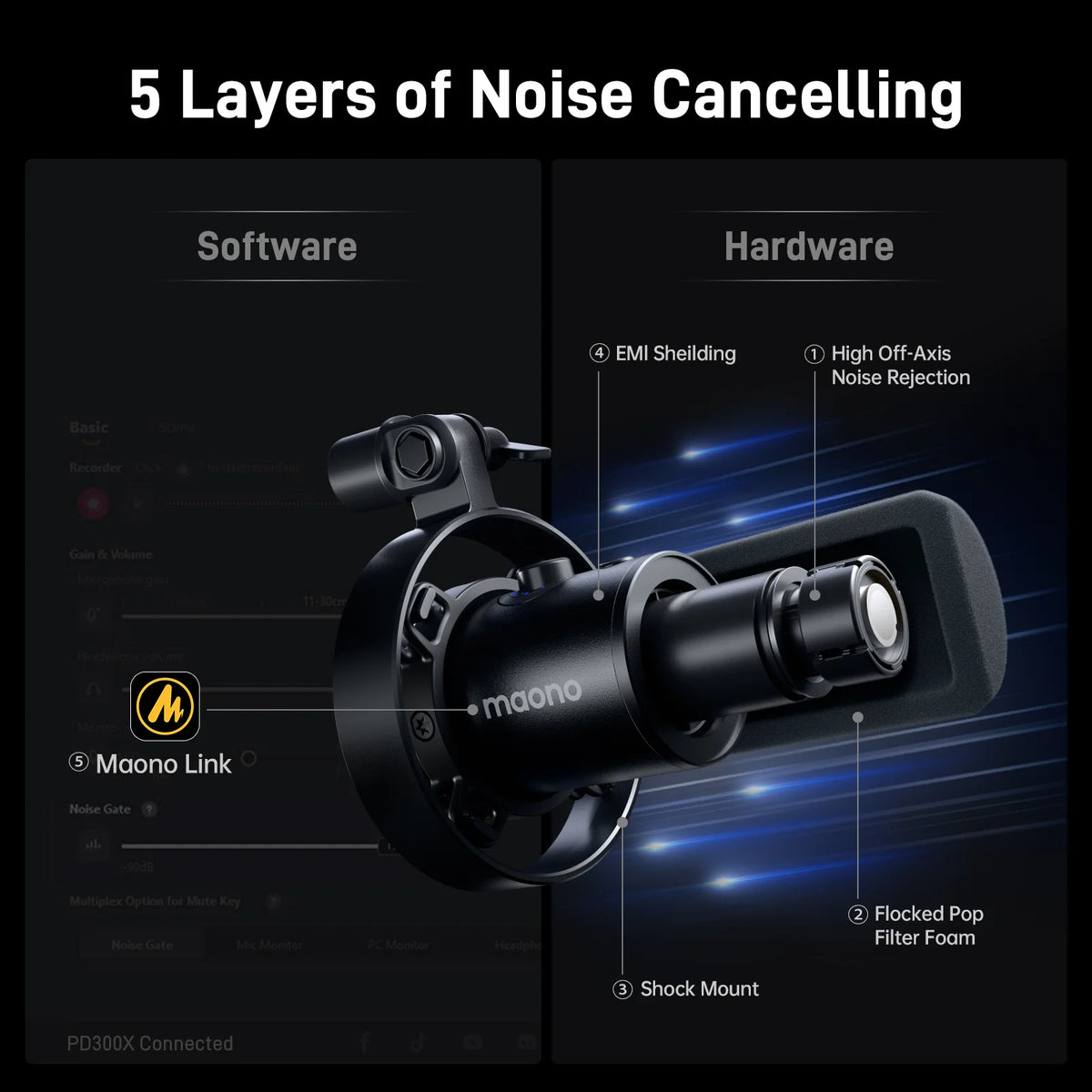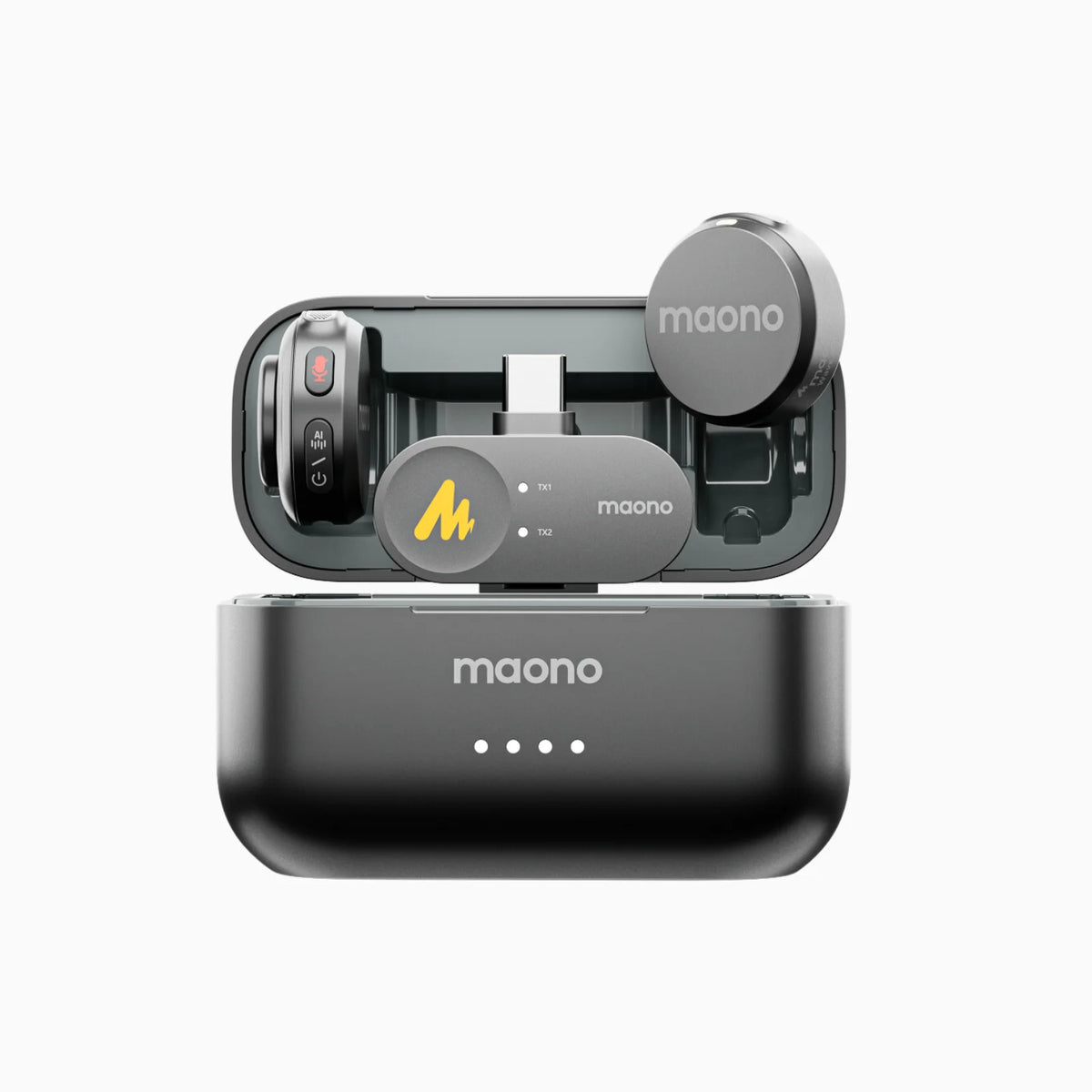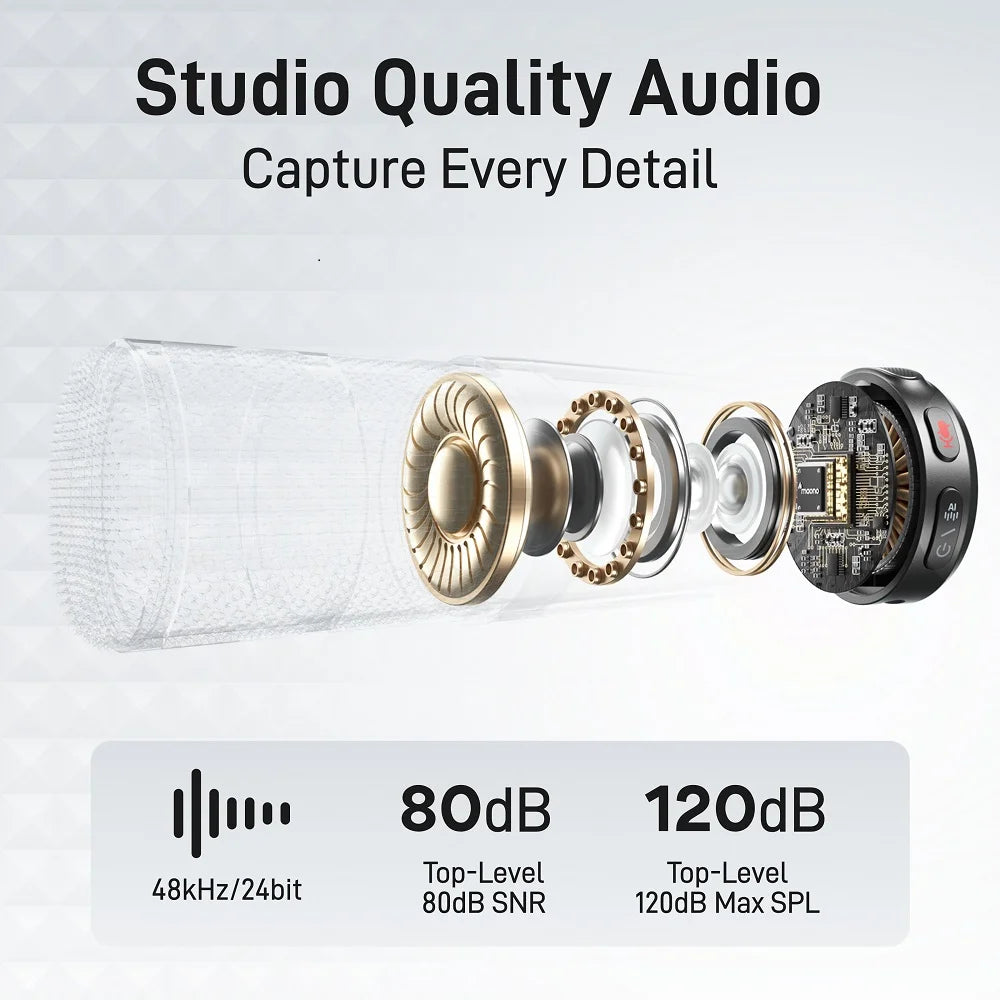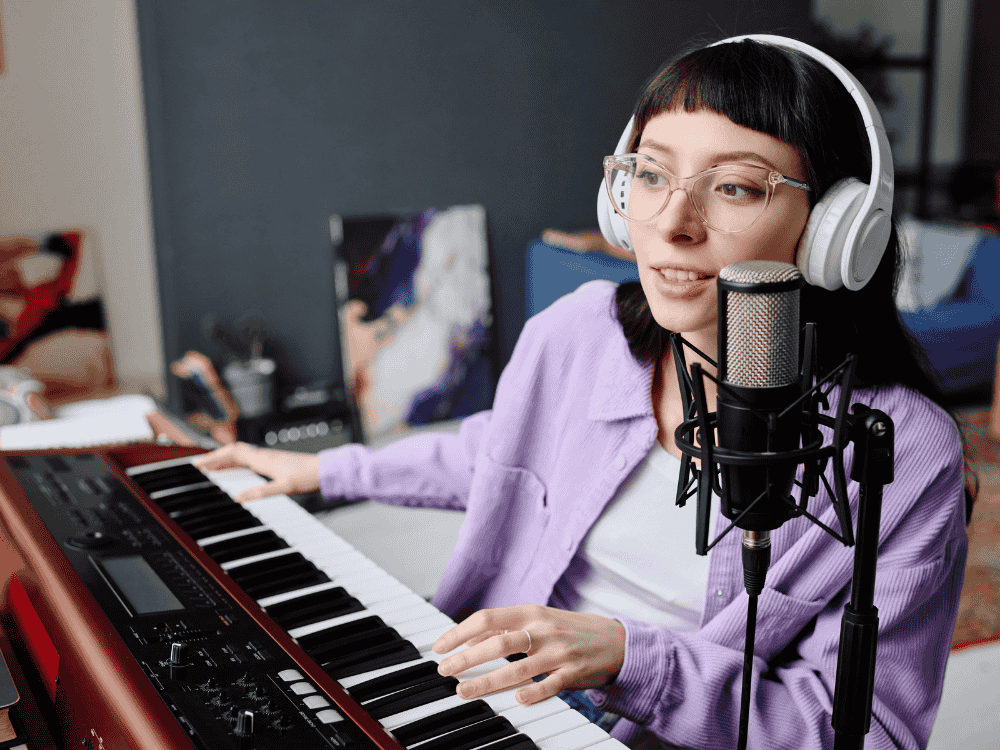A voice actor's tool of the trade is their voice, but an equally important tool is the recording mic that captures their performance. Whether you're recording voiceovers for animation, audiobooks, commercials, or video games, the quality of your microphone can make a significant difference. A good home recording mic for a voice actor ensures that your voice is captured clearly, accurately, and with professional-grade sound. But with so many microphones on the market, how do you know which one is right for you?
In this article, we’ll explore what makes a recording mic ideal for a voice actor or voice artist, why noise cancellation is crucial, and provide recommendations for some of the great recording mics available. We will also discuss how to set up your home studio for optimal voice recording and answer some frequently asked questions.
What is Considered a Good Home Recording Mic for a Voice Actor or Voice Artist?
A good home recording mic for a voice actor is one that accurately captures the nuances of your voice, allowing for professional-level recordings in a home studio environment. The following factors are important:
-
Clarity and Precision: A microphone that delivers crystal-clear sound without distortion, ensuring that every word is crisp and intelligible.
-
Wide Frequency Response: Voice actors need a mic with a broad frequency response to capture the full range of their vocal tones, from deep lows to bright highs.
-
Sensitivity: A sensitive recording mic that picks up subtle vocal details but doesn’t overemphasize background noise is essential for capturing every nuance of your performance.
- Noise Cancellation: A noise-canceling mic is important for voice actors, especially in home studios where external noise can be a significant problem. This feature reduces unwanted sounds, such as traffic, street noise, or room echoes, and ensures your voice is the focal point.
Why is a Noise-Canceling Mic Essential for a Voice Actor/Voice Artist?
A noise-canceling microphone is essential for a voice actor or artist because it helps create a clean, distraction-free recording. In a typical home environment, various background sounds can interfere with your voice work: neighbors talking, traffic outside, pets, and even the hum of your computer. If your mic picks up these sounds, it can ruin the recording, making it unprofessional or unusable.
Noise-canceling mics are designed to isolate your voice from these sounds. They achieve this through advanced features like cardioid polar patterns (which pick up sound mainly from the front) or using technologies such as active noise cancellation or a combination of both. This means that the mic can pick up your voice clearly while minimizing unwanted noise from your surroundings.
What Are the Great Recording Mics Available in the Market and Why Are They Great for Voice Acting or Voiceovers?
Several great recording mics excel in voice acting and voiceover work. Here are three excellent choices that are favored by professionals:
1. Maono A04 (AU A04)

The Maono A04 is a USB condenser mic that’s perfect for beginner and intermediate voice actors. It offers high-quality recording with a broad frequency response, making it great for capturing the details of a voice performance.
-
Features:
- Cardioid Polar Pattern: This feature helps isolate your voice while minimizing background noise, making it ideal for untreated rooms.
- Plug-and-Play USB Connectivity: Easy to set up, no need for a separate audio interface.
- Affordable: One of the best budget-friendly options for voice actors looking to get high-quality sound without breaking the bank.
-
Why It’s Great for Voice Acting: The Maono A04 delivers excellent sound clarity and voice isolation, making it perfect for voiceover work, especially for those starting out. It’s simple to use, and the cardioid pattern helps reject ambient noise that can be disruptive.
2. Maono PM461

-
Features:
- XLR Connectivity: Ideal for voice actors with a more advanced home studio setup, providing a better signal quality when paired with an audio interface.
- Cardioid Pickup Pattern: This helps reduce the pickup of unwanted noise, ensuring that the voice is captured clearly while minimizing any distractions.
- Durable and Well-Built: The PM461 is known for its solid construction, ensuring longevity and reliability for professional recordings.
-
Why It’s Great for Voice Acting: The PM461 offers studio-quality sound with a balanced frequency response, making it suitable for a wide range of voiceover work. The cardioid pattern ensures that it focuses solely on your voice, eliminating background distractions.
3. Maono PD100U:

The Maono PD100U is another great choice for voiceover artists, offering a professional-level recording experience at a more affordable price than many competitors.
-
Features:
- High-Quality dynamic mic: Ensures high-fidelity sound reproduction with minimal noise and distortion.
- USB: Offers USB/USB-C connectivity and durable (all-metal build).
- Built-in Noise-Canceling Technology: Helps reduce ambient noise, providing cleaner recordings in less-than-ideal environments.
- Why It’s Great for Voice Acting: With a high-quality condenser capsule and built-in noise canceling mic features, the Maono PD100U delivers excellent vocal clarity and minimal interference from background sounds. Its cardioid pattern ensures your voice is front and center.
What Is the Best Mic for Home Recording?
For home recording, the best mic for home recording depends on your needs, budget, and the environment in which you'll be recording. That said, condenser microphones with a cardioid pattern are typically considered the best choice because they are sensitive enough to capture subtle details in the voice, yet they also reject unwanted sounds from the sides and rear.
-
Best Overall Mic for Home Recording: The Audio-Technica AT2020 is a top recommendation for home recording. It’s a cardioid condenser mic that delivers professional-quality sound at an affordable price, making it great for voiceover artists recording from home.
- Best Budget Mic for Home Recording: For those on a budget, the Maono A04 is an excellent choice. It delivers clear sound quality without breaking the bank, making it ideal for newcomers to voice acting.
How Do You Set Up a Home Studio for Voice Acting?
Setting up a home studio for voice acting doesn’t need to be overly complicated, but it does require some planning to achieve professional-level results. Here are some steps to consider:
1. Choose the Right SpaceLook for a quiet room with minimal noise. Rooms with carpets, curtains, and soft furniture help absorb sound and reduce reflections. Avoid rooms with hard, reflective surfaces, as they can cause echoes and reverb.
2. Invest in Acoustic TreatmentTo minimize echo and reverb, consider adding foam panels, bass traps, and diffusers to your recording space. You can also use thick curtains or blankets to absorb sound and prevent it from bouncing off the walls.
3. Get the Right Equipment
- Microphone: As discussed, a quality microphone such as the Maono AU A04, PM461, or PM360 will deliver high-quality voice recordings.
- Audio Interface: For XLR mics, you’ll need an audio interface to connect your mic to your computer.
- Pop Filter: A pop filter helps eliminate plosives (harsh sounds like "p" and "t") that can distort recordings.
- Microphone Stand: A sturdy stand keeps the mic in place and reduces vibrations.
- Headphones: High-quality, closed-back headphones will allow you to monitor your recordings without interference from outside noise.
5. Test and Record: After setting up your studio, do several test recordings to ensure the sound is clear and free from background noise. Make adjustments as needed.
FAQs
Should Voice Actors Use a Dynamic or Condenser Microphone?
Voice actors typically prefer condenser microphones because of their sensitivity and ability to capture the full range of vocal tones. Condenser mics are better suited for capturing the subtle nuances of speech and are ideal for studio environments where high sound fidelity is required. Dynamic microphones, on the other hand, are less sensitive and are often used in louder environments or for capturing instruments.
How Do I Prevent Background Noise When Recording for Voice Acting or Voiceover Work and the Room Is Untreated?
To prevent background noise in an untreated room, consider these options:
- Use a Cardioid Microphone: A cardioid mic will reject sound from the sides and rear, helping to focus on your voice.
- Minimize Room Noise: Record during quiet times of the day. Close windows, doors, and turn off any appliances that could create noise.
- Acoustic Treatment: If possible, add some basic acoustic treatment to your room, like foam panels or moving blankets, to absorb sound.
How Do I Reduce Echo and Reverb When Recording Vocals for Voice Acting?
To reduce echo and reverb:
- Use Soft Materials: Add carpets, curtains, and foam panels to absorb sound waves.
- Microphone Placement: Position the mic away from reflective surfaces like walls or windows. A closer mic placement can help reduce room noise.
- Room Treatment: For best results, invest in acoustic foam or bass traps for a controlled recording environment.




